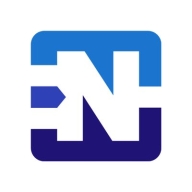


Netgate pfSense and Check Point Quantum Force (NGFW) compete in the network security solutions category. Data comparisons show that while Netgate pfSense is noted for cost-effectiveness and support, Check Point Quantum Force (NGFW) has the upper hand in enterprise environments due to comprehensive features.
Features: Netgate pfSense is recognized for its open-source platform, firewall functionalities, and community support. Check Point Quantum Force (NGFW) excels with advanced threat prevention, integration with other security tools, and analytics capabilities, appealing to businesses needing high-end security solutions.
Room for Improvement: Netgate pfSense could enhance ease of deployment for less technical users, improve hardware compatibility, and offer better GUI intuitiveness. Check Point Quantum Force (NGFW) can focus on streamlining updates, providing more flexibility in smaller setups, and reducing deployment complexity.
Ease of Deployment and Customer Service: Check Point Quantum Force (NGFW) provides a structured deployment model with professional support services, ensuring smooth integration into existing systems. Netgate pfSense, being flexible and customizable, often requires more technical expertise during deployment.
Pricing and ROI: Netgate pfSense has low initial setup costs due to its open-source nature, offering significant ROI for budget-conscious organizations. Check Point Quantum Force (NGFW) involves higher upfront costs, justified by its value and ROI potential. Despite a high initial investment, its comprehensive security offerings effectively safeguard company assets.
Clients are now comfortable and not wasting productive hours on IT support.
The automation part is giving us a cost benefit and speed; we can react faster.
It's a very useful tool to mitigate and protect your enterprise.
This is a time-saving measure because we don't need to deploy a cluster or a firewall each time; we just create a virtual system on the management server using the same appliance.
Incident response time has reduced significantly, and downtime due to network issues has been minimized, leading to an improved return on investment.
The fact that we've not had any breach toward the data center side is plenty enough.
If they can save their data from attackers then it would save them at least two days of not working plus the cost of recovery, which would be much more than the cost of the system and maintenance.
Since the memory leak fixes, it's been incredibly stable and requires minimal maintenance.
In four years of using it, that payment of 189 dollars per year has already paid off.
The quick resolution of issues with Fortinet FortiGate is due to the support of the company and the fact that the equipment is easy to work with.
I would rate the technical support for Fortinet FortiGate a ten out of ten.
As a solution provider, when I encounter problems, I connect directly with Fortinet support, and they provide solutions within a very short time.
The support team we engaged was knowledgeable and well-versed with the application.
We have escalated issues to Check Point technical support multiple times and have received timely and very good responses.
Even challenging issues like those with VPNs have been resolved efficiently with their help.
When I provide detailed information about the problem, they've been able to reply quickly with a solution or go research the problem and get back to us quickly with a fix.
They are highly responsive.
I couldn't imagine having better support.
They scale up really well from smaller models like the FortiGate 40 and 50 to bigger sites with the FortiGate 100 for more throughput - up to enterprise datacenters.
The variation comes in terms of the interfaces and throughputs, but from a security perspective, you get the same benefit, irrespective of whether you have an entry-level unit or an enterprise.
We determine sizing based on multiple factors: number of users, available links, traffic types, server count, services in use, and whether services will be published.
If specified correctly, even the smaller boxes offer high session and bandwidth rates, making the solution highly scalable, even up to telco-level requirements.
It is easy to scale up by adding capacity through clustering or upgrading the license, and it effectively handles spikes in remote user connections or increased east-west traffic without noticeable bottlenecks.
Scalability must be carefully planned for, considering future growth and user base increases.
If I put things into a certain context and say that we have a network that has around 100 people, then you don't put up a device that can manage 100 people. Instead, you need to get a device that can manage 150 to 200 people, and then you can create room for growth.
I don't think Netgate pfSense can offer much scalability for big enterprises.
Even with a jump from a 50 megabit to a 500 megabit internet connection and approximately 65 active VPN clients, our firewall operates smoothly without any strain.
We're experiencing 99.999% availability consistently.
I would rate the stability of Fortinet FortiGate a ten out of ten.
Currently, we are experiencing a general outage of one of the main internet service providers of the Dominican Republic, and we have not been impacted in our operations because with SD-WAN, we have another internet service provider and we are working with the second WAN connection without any disruption.
While the solution is generally stable, there are complications, such as requiring SmartConsole for deployment and upgrades, which can be time-consuming.
I have worked with Check Point products for 15 years and haven't found any stability or performance issues.
The use of Check Point firewalls has helped improve our security posture without any downtime.
I rate the solution's stability a ten out of ten.
I've noticed a substantial improvement in stability and ease of use for upgrades and patching over the past year or two.
When I replace consumer routers with pfSense for small businesses with two or three employees, they are often amazed to discover the router can run for a year without a reboot.
These sessions should be around five to ten minutes long, allowing users and partners to quickly grasp the information without disrupting their daily tasks.
The solution should be able to implement machine learning and analytics of all the logs for threat detection and protection.
It would be better for customers to get immediate replacements even with a standard subscription.
AI-driven features would be highly valuable—particularly those that enable bulk operations and efficient handling of large numbers of objects or object groups.
One thing that would help in improving Check Point Quantum Force (NGFW) is having more flexible dashboards that I can tailor without relying on templates.
Other products, like FortiGate, are perceived as more intuitive because they are easier to configure from the start.
There is some trade-off between having a certain level of security and maintaining acceptable performance.
If I need to go between different VLANs, I have VLAN 19.1 and VLAN 19.2, and I strictly use Netgate pfSense, but it doesn't route very efficiently and works quite slowly.
They should support the idea of configuration management as code from source code and provide a more robust API for managing the pfSense configuration.
Last year, I renewed the support for three years, which can sometimes be expensive but depends on the security benefits and how it helps us.
It offers cost savings as it is generally cheaper than the competition.
It is about 20% cheaper.
In comparison to Fortinet and other products, the pricing may be considered high.
licensing is very pricey
Compared to other solutions, the pricing of Check Point NGFW is high.
The price of setup is approximately €500 to €800, which also includes the initial monitoring.
The product is free of cost.
Opting for twenty-four-seven support significantly increases the price, reaching around ten thousand to thirteen hundred dollars.
These features help reduce our downtime, manage the ISPs, and deploy SLAs for all the website traffic.
The most valuable feature of FortiGate is FortiView which provides proactive monitoring.
We got a firewall and gave an SSL VPN to my client to connect to their servers, after which, such kind of activities involving ransomware attacks stopped.
The firewall's default behavior of blocking all traffic, including a cleanup rule that blocks everything from external to internal sources, is highly valuable for protecting our network.
The most valuable features in my experience include perimeter firewalling, cloud and mobile security, application control, URL filtering, DLP, threat prevention, intrusion protection, and safeguarding against malware, botnets, and zero-day attacks.
Since implementing it, we have noticed a lot less getting through that maybe other antivirus within firewalls had failed to catch.
With pfSense, network configurations adhere to standard practices, facilitating troubleshooting without the need for complex overlays or policies.
The price point is the most valuable aspect of the solution.
I like the tool's flexibility in the sense that you do not have to buy an appliance. You can put it on your own hardware, and it can be very simplistic hardware with simple configurations.
| Product | Market Share (%) |
|---|---|
| Fortinet FortiGate | 18.8% |
| Netgate pfSense | 9.9% |
| Check Point Quantum Force (NGFW) | 2.9% |
| Other | 68.4% |


| Company Size | Count |
|---|---|
| Small Business | 357 |
| Midsize Enterprise | 133 |
| Large Enterprise | 188 |
| Company Size | Count |
|---|---|
| Small Business | 159 |
| Midsize Enterprise | 94 |
| Large Enterprise | 199 |
| Company Size | Count |
|---|---|
| Small Business | 168 |
| Midsize Enterprise | 33 |
| Large Enterprise | 29 |
Fortinet FortiGate is a versatile network security tool offering features like VPN, firewall, web filtering, intrusion prevention, and scalability. It is known for its performance and integration with other Fortinet products, making it a preferred choice for robust cybersecurity.
Fortinet FortiGate stands out as a comprehensive cybersecurity solution with strong performance and ease of configuration. It delivers unified threat management, integrating features such as dynamic routing, SD-WAN support, and centralized management. Despite its strengths, improvements in the web interface's stability, pricing structures, and reporting capabilities are needed. Users seek better integration with third-party tools and automation advancements to enhance the experience further. These enhancements, alongside improvements in bandwidth management and the reduction of licensing costs, are points of interest for users looking to capitalize on FortiGate's extensive capabilities.
What are Fortinet FortiGate's key features?Fortinet FortiGate is widely implemented across industries as a primary firewall system for securing internet gateways and safeguarding data centers. It supports businesses in achieving SD-WAN integration and enhances cybersecurity by providing essential features like antivirus, web filtering, and application control. Enterprises utilize FortiGate for securing remote connections and ensuring compliance with security standards, making it adaptable for different network sizes and industries.
Check Point Quantum Force NGFW provides centralized management with scalable security for network perimeters. As a reliable firewall, it ensures advanced threat prevention and offers seamless integration, making it suitable for various network environments.
Offering comprehensive security, Check Point Quantum Force NGFW helps control ingress and egress traffic, secures data center firewalls, and integrates seamlessly with cloud and on-premises setups. Users appreciate its application control, deep packet inspection, and identity awareness features for enhanced protection against cyber threats. Despite pricing issues and interface complexity, its IPsec VPN and robust logging provide valuable insights into network activities.
What are the key features of Check Point Quantum Force NGFW?Check Point Quantum Force NGFW is deployed across industries for securing network boundaries, supporting critical data center operations, and enabling secure VPN connections. In finance, it helps meet stringent compliance standards, while in healthcare, it's crucial for protecting sensitive patient data through robust security protocols.
Netgate pfSense is an open-source firewall and router software known for scalability, cost-effectiveness, and community support. It includes customizable packages for varied network management needs, offering solid performance and straightforward management for diverse setups.
Netgate pfSense provides an impressive range of functionalities including firewall capabilities, VPN options, and extensive customization through packages. Its low resource usage and high availability make it viable for businesses of all sizes, especially when dealing with tailored network demands. Despite its strengths, users suggest improvements in ease of use, mobile compatibility, and support for plug-ins. Enhanced centralized management, better documentation, and additional security features are frequent requests.
What are the key features of Netgate pfSense?In education and healthcare, Netgate pfSense is employed for secure connectivity and efficient traffic management, accommodating distinct demands of remote access and content filtering. Organizations in these sectors often utilize features such as load balancing and VPNs to maintain secure and reliable network operations while integrating with services like Active Directory for streamlined identity management. Small to medium-sized enterprises benefit from its affordability and robust functionality, making it a go-to choice for managed service environments requiring effective network security and control.
We monitor all Firewalls reviews to prevent fraudulent reviews and keep review quality high. We do not post reviews by company employees or direct competitors. We validate each review for authenticity via cross-reference with LinkedIn, and personal follow-up with the reviewer when necessary.